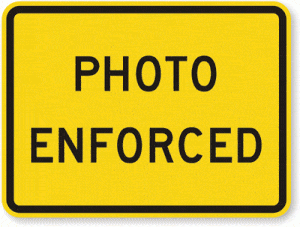
Good Samaritan laws are in effect to encourage people to help in the event of an emergency to the best of their ability. Even if you only can call 9-1-1, it is still your effort to help that makes you a Good Samaritan,
Most states have a Good Samaritan law that is in effect to protect anyone who chooses to help in a bad situation. Mississippi is one of them. However, it is a law that few fully understand.
If you were trying to act in the best interest of someone in an emergency and now, they say you did wrong, you should seek legal counsel. At Morris Bart, we can help you defend your actions if they fall under the Good Samaritan law.
What Is a Good Samaritan?
In Mississippi the term “Good Samaritan” enables you to act to help others without the fear of negative consequences. There are actually two different scenarios that it may apply to.
- Accidents and personal injury. If you are a trained physician and see an accident where someone is injured, you are encouraged to do what you can to help. Physicians, dentists, and other healthcare providers should all be able to act without fear of retribution.
- Drug overdoses. If you witness someone overdosing on dangerous drugs, you should be able to call for help without facing a penalty, regardless of whether you have been using the same drugs or not.
The requirements for you as a Good Samaritan are simple. You must act in good faith to provide reasonable care to a person in need. If you are not acting in good faith or cause personal injuries due to gross negligence, you sacrifice your immunity from civil liability.
For a free legal consultation, call 800-537-8185
Why We Need Good Samaritan Laws
The idea of a Good Samaritan has been around for years. It can be traced back to bible stories about a man who stopped to help someone after others had passed him by.
In today’s world, the idea of Good Samaritan laws is to encourage people who can provide assistance where they can. It is especially useful and important for preventing drug overdoses from opioid use. However, it has a broad range of benefits during other bad situations.
What Mississippi’s Good Samaritan Law Covers
The “Mississippi Medical Emergency Good Samaritan Act” and how it relates to drug use or possible overdoses is quite clear. It protects anyone witnessing or experiencing a drug overdose, even to the extent that you cannot be penalized for:
- Using Drugs or Providing Drugs to Prevent Overdose
- Violating Protective or Restraining Orders to Help
- Breaking Conditions of Probation, Parole, Or Pretrial Releases
- Or Be Required to Forfeit Property Except for Prima Facie Contraband (Or Dangerous Drugs) Unless Medically Necessary
In other situations, it gives medical personnel the ability to take care of injuries at the scene of an accident. They can even use a defibrillator, whether they have been trained or not if it is used to try and prevent death.
Click to contact our personal injury lawyers today
Do the Good Samaritan Laws in Mississippi Extend to Everyone?
Although the Good Samaritan law for most states includes anyone at the scene of an accident, Mississippi is different. In general, Good Samaritan laws extend to anyone who is medically trained to some extent according to Mississippi Code §73-25-37.
It does not cover the average American trying to help when someone needs it. However, for most people, that is exactly what we would do. We would jump in to help if we felt that there was a reason to do it.
However, you could open yourself to liability if:
You do Not Have Proper Training (as in CPR)
If you do not have proper training in how to do CPR or other life-saving moves, you could end up causing more damage than good. If you are not fully trained, you should seek help from someone who is or call 9-1-1 to prevent liability.
You do Not Have Permission from the Victim to Help
If there is a car accident and you are a witness to it, the car is on fire and its driver is unconscious. You may not be able to ask for permission to help them get out. In other situations, where they are awake, you should ask before attempting to remove them from their vehicle.
When dealing with children, it is always in your best interest to ask an adult if they are alert. If they aren’t, consent to help may be implied. This means you should do your best.
It Can Be Proven that You did Not Act in Good Faith
Let’s say a car accident has happened. You know that moving that person will cause more harm than good. They are not in immediate danger but move them anyway. It causes them to never be able to walk again.
If they can prove that you should not have moved them, and you are not a medically trained person, the liability for their injury could come back on you.
When confronted with these types of situations, our first instinct is to help the person who needs it. Most people will appreciate that you were there to assist when they needed it the most. Others may choose to come after you legally if they feel you were not qualified to help.
When to Seek Legal Counsel in a Good Samaritan Situation
In some states, it is against the law to not help someone in need if you are able. In Mississippi, you need to be qualified to help before you step in.
If you chose to step in and provide help to someone and now feel that your Good Samaritan act may have negative consequences, you should seek counsel. Even though it isn’t in the law books, there are provisions that may help you show that you acted in good faith in the heat of the moment.
We Are Here to Help You Prove Your Case
Mississippi is one of the few states that is specifically geared toward protecting healthcare workers who act as Good Samaritans. Morris Bart attorneys are here to answer your questions and concerns about your own good faith acts of kindness in the middle of a bad situation.
We proudly serve Gulfport, Hattiesburg, and Pascagoula, Mississippi. We will gladly provide you with a free consultation regarding your situation. We are available 24/7. All you have to do is contact us.
Questions?Call 800-537-8185
to find a Morris Bart office near you.




